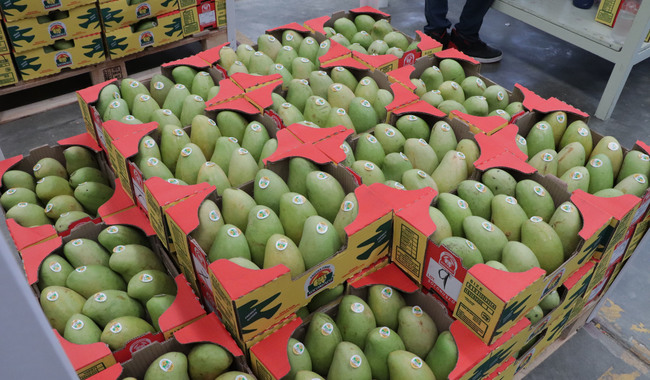Mexico and U.S. certify irradiation plants to strengthen fruit and vegetable exports

U.S. and Mexican authorities have certified irradiation plans in their respective countries, as the two sides work to facilitate fresh produce trade. The effort seeks to eliminate pests and bacteria from fresh vegetable products.
In order to evaluate the operating conditions of the new Reveam Inc. irradiation plant located in McAllen, Texas, officials from the National Agri-Food Health, Safety and Quality Service (Senasica) visited the facilities. The representatives verified both the infrastructure and trained technical personnel to guarantee the safety of exported food products.
Francisco Ramírez y Ramírez, general director of Plant Health of the Agriculture agency, and Juvenal Morales Ramírez, agricultural specialist in Phytosanitary Certification, emphasized that the new plant speeds up packaging control. The facility has the capacity to apply treatment to 120 boxes per minute.
The executives we able to verify that the plant complies with the guidelines to support food safety established by Senasica and the Animal and Plant Health Inspection Service of the U.S. Department of Agriculture (APHIS-USDA) in the Operational Work Plan for the importation of products from Mexico destined for irradiation in the United States.
The building has eight lines for wooden frames, which facilitate cargo handling and prevent the cold chain from being broken. To ensure this, the space has a stable temperature of five degrees Celsius.
The Food and Drug Administration (FDA) is responsible for regulating the energy used to irradiate food entering the country.
Irradiation as a phytosanitary treatment, a variant of conventional quarantine processes. Its main objective is to neutralize pests and minimize risks to plant health in importing countries.
Featured picture: Courtesy of the Government of Mexico.














































